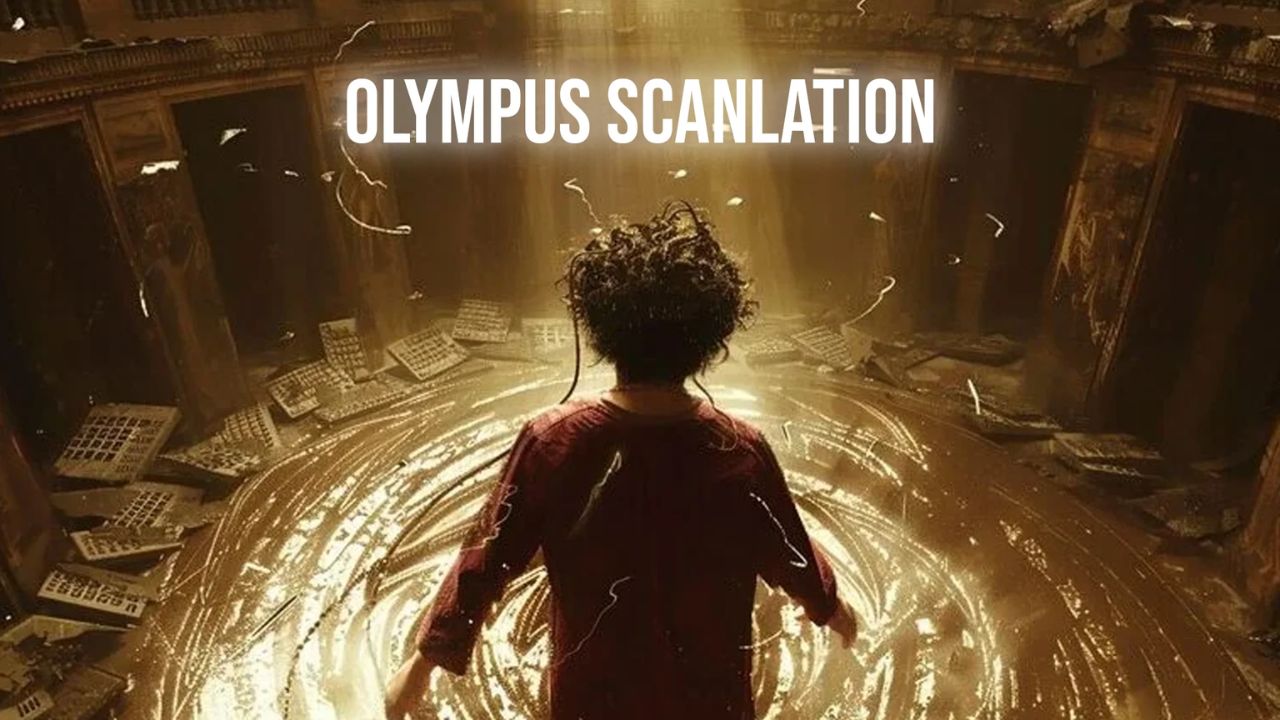More
Olympus Scanlation: Pioneering the Manga Translation World

Manga has become a global phenomenon, captivating readers across continents. However, a large portion of manga remains inaccessible to fans outside of Japan due to language barriers and delayed official translations. In this regard, Olympus Scanlation has been a significant name in the scanlation community. Through their efforts, manga enthusiasts have enjoyed timely access to their favorite stories, even before official releases became available.
What is Olympus Scanlation?
Olympus Scanlation refers to a fan-driven group that focuses on translating manga from Japanese to English (and other languages) for non-Japanese-speaking audiences. Scanlation, a term blending “scan” and “translation,” involves scanning raw manga pages, translating the text, editing, and releasing the translated version online.
Olympus, like many scanlation groups, operates out of passion for the art form and dedication to bridging the gap between creators and global fans. Their work primarily focuses on series that may not receive official translations or localized releases.
Why is Olympus Scanlation Popular?
The popularity of Olympus Scanlation stems from a combination of factors:
- Timely Translations: Fans appreciate the rapid release of translated chapters, sometimes within days or hours of the original release.
- Quality of Work: Olympus Scanlation prioritizes accurate translations, clean scans, and meticulous editing to provide an enjoyable reading experience.
- Access to Niche Manga: They often focus on niche titles overlooked by major publishers. This ensures that even less mainstream works reach a global audience.
- Community Connection: Readers form a close-knit community through forums and platforms where scanlations are distributed, enhancing fandom culture.
How Olympus Scanlation Works
The process of manga scanlation, especially with teams like Olympus, requires collaboration and precision. Their workflow generally includes the following steps:
Raw Acquisition
The journey begins with acquiring the raw manga scans. These are unedited pages directly sourced from Japanese magazines, digital formats, or print versions.
Translation
A translator, proficient in Japanese and the target language, converts the dialogue and sound effects into coherent and accurate translations. Maintaining cultural nuances and tone is crucial here.
Editing and Cleaning
Editors clean up the raw scans, removing original text, adjusting image quality, and preparing the pages for the translated content. This phase involves removing watermarks, sound effect marks, and blemishes from scanned pages.
Typesetting
Typesetters insert the translated text into the speech bubbles and panels. The goal is to mimic the original layout while ensuring readability and aesthetic appeal.
Proofreading
Before release, a proofreader checks the translated chapters for grammatical errors, mistranslations, or formatting issues.
Distribution
Finally, the finished chapters are distributed through websites, forums, and file-sharing platforms for fans to access freely.
The Role of Olympus Scanlation in the Manga Community
The contribution of Olympus Scanlation has been undeniably significant in the manga ecosystem. Here’s how they have influenced the global manga scene:
Bridging Cultural Gaps
Without groups like Olympus Scanlation, manga enthusiasts worldwide would miss out on captivating stories due to language barriers. Their translations ensure manga is accessible to everyone.
Promoting Lesser-Known Titles
While major publishers focus on blockbuster manga series like Naruto or One Piece, Olympus often highlights obscure or independent works that deserve recognition. This helps these stories gain an international fanbase.
Building Communities
Olympus Scanlation fosters vibrant online communities where fans discuss plot developments, exchange fan theories, and celebrate their shared love for manga.
Driving Official Releases
Interestingly, scanlation groups often serve as an unintentional testing ground for manga popularity. If a series becomes a fan-favorite through unofficial scanlations, publishers may take notice and release official translations sooner.
The Debate Surrounding Scanlation: Ethical Considerations
While Olympus Scanlation has revolutionized manga access, their work exists in a morally gray area. The debate on scanlations often revolves around the following points:
Support for Creators
Critics argue that scanlations, including Olympus releases, deprive creators and publishers of rightful revenue. Since most scanlations are released for free, they undermine official sales.
Accessibility vs Copyright
Proponents believe scanlation groups fulfill a demand that the publishing industry often ignores. When official translations are unavailable or take years to release, fans rely on scanlation teams like Olympus for access.
Recognition of Effort
Although Olympus Scanlation operates unofficially, their dedication to quality translations is undeniable. However, it is essential to strike a balance between fan passion and respecting creators’ intellectual property.
Impact of Olympus Scanlation on the Global Manga Industry
The global manga boom owes much to the efforts of scanlation groups like Olympus. Their impact can be summarized as follows:
- Wider Reach for Manga: Olympus Scanlation brought Japanese manga to countries and audiences where official publications lagged.
- Fan-Driven Innovation: The scanlation process pushed for better typesetting, cleaner scans, and user-friendly releases, inspiring official publishers to improve quality.
- Increased Demand for Manga: Many readers first encounter manga through scanlations, leading to increased interest in physical and digital purchases of official releases.
Challenges Faced by Olympus Scanlation
Despite their success, Olympus Scanlation faces several challenges, including:
- Legal Pressure: Manga publishers often crack down on scanlation groups to protect their copyrights. Olympus has faced similar obstacles.
- Resource Limitations: Maintaining quality translations requires dedicated volunteers, time, and technical tools, all of which can be scarce.
- Competition: With new scanlation groups emerging constantly, maintaining their reputation for quality remains challenging.
The Future of Olympus Scanlation
The future of Olympus Scanlation hinges on evolving industry dynamics. As official publishers become faster in releasing translations, the need for scanlation may diminish. However, groups like Olympus will continue playing a vital role as long as there is a demand for niche and untranslated manga.
Technological advancements, such as AI-driven translations and improved digital manga platforms, may further reshape scanlation practices. Nevertheless, Olympus Scanlation’s legacy as a pioneer will remain intact in the annals of manga history.
Conclusion
Olympus Scanlation represents the passion and dedication of manga enthusiasts worldwide. While scanlations operate in a complex ethical landscape, their contributions to global manga accessibility are undeniable. For fans, Olympus Scanlation has opened doors to vibrant storytelling, building communities and fueling a love for Japanese art and culture.
As the manga industry evolves, it is essential to support both fan efforts and official creators to ensure that stories continue to inspire generations. Whether through official translations or the unsung work of groups like Olympus Scanlation, manga remains a universal language, connecting readers beyond borders.
Also Read: Ivermectin: The Medication That Changed Global Health
FAQs
What is Olympus Scanlation?
Olympus Scanlation is a fan group that translates and releases manga chapters for free, bridging the gap for readers who cannot access Japanese manga.
Is Olympus Scanlation legal?
Technically, scanlation is illegal because it involves distributing copyrighted content without permission. However, fans often view it as a service born out of passion and necessity.
Why do fans support scanlation groups like Olympus?
Fans appreciate the timely, high-quality translations and access to niche manga that would otherwise remain unavailable in their region or language.
How does Olympus Scanlation maintain translation quality?
Olympus Scanlation relies on a collaborative process involving translators, editors, typesetters, and proofreaders to ensure accurate and clean translations.
Does Olympus Scanlation profit from their work?
No, most scanlation groups like Olympus operate on a volunteer basis and release their work for free. They do not profit monetarily from their efforts.
What is the future of scanlation in the manga industry?
While official translations are becoming faster, scanlation groups may still thrive by focusing on niche manga or underserved markets.
More
Candizi: The Sweet Revolution Blending Wellness, Flavor & Experience

Discover Candizi—the innovative candy brand designed to satisfy cravings while promoting healthy living. Combining functional ingredients, vibrant taste experiences, and creative engagement, Candizi is remaking the idea of what sweets can be. Let’s unwrap how this brand stands apart.
1. How Candizi Came to Life with Heart & Health
Candizi began as a passion project among wellness-driven founders who desired a guilt-free snack. What started with small-scale kitchen tests quickly evolved through meticulous recipe development, extensive taste-testing, and consumer feedback.
This journey shaped a clear mission: offer indulgent treats that fuel rather than deplete. By emphasizing quality ingredients and nutritional purpose, Candizi challenges the notion that treats must be unhealthy.
Today, their philosophy is simple yet bold—balance and mindful pleasure. Candizi is proof that you don’t have to choose between joy and wellness.
2. Health-Conscious Ingredients That Stand Out
Rather than relying on refined sugars, Candizi backs its sweetness with natural alternatives. This choice not only lowers caloric impact but adds a clean, subtle flavor profile to every bite
Infused with nutrient-rich ingredients like chia, cacao, and real fruit extracts, each product delivers more than just taste—it offers nourishment. Whether boosting antioxidants or supporting digestion, Candizi treats aim to deliver purpose.
Candizi also champions inclusivity: many of its offerings are vegan, gluten-free, and mild on common allergens. This thoughtful ingredient selection invites a wide range of consumers to enjoy without compromise.
3. Explosion of Flavors & Formats to Suit All Tastes
Candizi offers an impressive variety—everything from tropical gummy blends like mango-pineapple to bold chocolate combinations such as chili-cardamom truffles.
Beyond candies, their lineup includes syrups (perfect for lattes or pancakes), baking enhancers, and seasonal specials. Each release, such as peppermint winter drops or summer berry syrups, keeps fans excited and engaged.
Because products cater to every craving—spicy, fruity, chocolatey, or classic—Candizi provides endless ways to enjoy, ensuring there’s always something new to try.
4. Packaging & Digital Strategy Inspire Connection
Candizi isn’t just a sweet brand; it’s an experience. Picture vibrant, eco-friendly packaging with AR interactivity—scan a code to unlock animations, games, or loyalty rewards. These digital features bridge the physical-digital gap .
Social campaigns, like #CandiziCrave and pop-up tastings, infuse excitement into communities. The brand taps into influencer reviews and unboxings, generating authentic buzz across platforms like TikTok and Instagram.
This layered approach makes customers feel part of a flavorful movement—one that celebrates wellness, creativity, and informed enjoyment.
5. Real Feedback: What People Love About Candizi
Consumers are sharing transformational stories—energy is up, cravings are healthier, and indulgences feel rewarding rather than regretful. User testimonials highlight balance: “I get the candy fix and the wellness boost.”
Social feeds are full of bright, mouthwatering unboxings. Fans gush over innovative flavor mashups like watermelon chili gummies or blueberry lemonade sour belts—flavors that surprise and delight.
This enthusiastic community isn’t just consuming—they’re contributing. Recipes, pairings, and remix ideas pepper forums, reinforcing Candizi’s role as a creative staple.
6. Where to Find & Enjoy Candizi Sweetly
Candizi is available through multiple channels:
-
Specialty retailers & health stores: Featuring limited-run flavors and bulk packs.
-
Online shop & ecommerce platforms: Nationwide shipping, customizable bundles, and subscription options.
-
Events & pop-ups: Seasonal markets and festivals offer exclusive flavors and brand interaction
This multichannel approach ensures accessibility while keeping discovery fun and experiential.
Conclusion:
Candizi is more than candy—it’s a wellness-forward, flavor-forward, experience-first brand. By prioritizing clean ingredients, creative flavors, and tech-enabled engagement, Candizi delivers treats that are as enriching as they are delicious.
FAQs
Q1: Does Candizi deliver real health benefits?
Yes—natural sweeteners and superfood ingredients help reduce sugar spikes and enhance energy with lasting effects
Q2: Are any Candizi products vegan or gluten-free?
Absolutely. Many varieties are vegan, gluten-free, and cater to common allergen concerns .
Q3: What unique flavors does Candizi offer?
Expect creative blends like mango‑pineapple gummies, chili‑cardamom truffles, watermelon chili, and blueberry lemonade
Q4: How does digital interaction enhance my experience?
With AR-enhanced packaging, loyalty rewards, and interactive campaigns, Candizi’s digital tools elevate engagement and community .
Q5: Where can I purchase Candizi?
You can find them in select retailers, through their online store, on major ecommerce sites, and at in-person pop-ups.
READ ALSO:
More
Boost Your Creator Income: How to Optimize Your Bio Link for Maximum Earnings

In the ever-evolving creator economy, your bio link isn’t just a line of text—it’s your digital storefront. Whether you’re a content creator, influencer, artist, or coach, a well-optimized bio link can significantly increase your income by turning casual followers into paying fans, clients, or subscribers.
Let’s break down how you can turn that one small link into a high-converting, income-generating tool.
What Is a Bio Link, and Why It Matters
It is the clickable URL in your social media profile—usually on platforms like Instagram, TikTok, YouTube, or Twitter. Since most platforms allow only one link in your bio, this real estate is precious. Instead of sending users to a single page, creators are using tools like Linktree, Beacons, Koji, and Carrd to build mini landing pages that direct traffic to multiple destinations.
If you’re only linking to a single website or product, you’re missing out on valuable income opportunities.
Why Optimizing Your Bio Link Is Key to Higher Income
A bio link acts as a conversion funnel. It helps guide your audience toward desired actions—subscribing to your newsletter, booking a service, watching a video, or buying a product. Done right, it becomes your silent salesperson, working 24/7.
How to Maximize Creator Income with a Smart Bio Link Strategy
1. Use a Multi-Link Tool with Analytics
Tools like Linktree, Beacons, or Stan Store let you add multiple links and track performance. This helps you see what’s converting best—and tweak accordingly.
2. Prioritize High-Value CTAs
Arrange your 🔗 strategically. Put your most profitable or urgent calls-to-action (CTAs) at the top. Whether it’s a product launch, a new video, or a Patreon sign-up, make it the first thing people see.
3. Design for Mobile First
Over 90% of profile🔗 clicks come from mobile devices. Choose a clean, mobile-friendly layout. Use bold fonts, short descriptions, and easy-to-tap buttons.
4. Add Social Proof
Include testimonials, follower counts, or “as seen in” media mentions on your bio page. These add credibility and boost conversion rates.
5. Showcase Digital Products or Services
Whether you sell eBooks, courses, presets, or consultations, your bio 🔗 should clearly promote your top offerings with images, short descriptions, and direct purchase links.
6. Keep It Fresh
Update your 🔗 regularly to align with your current content or campaigns. An outdated link can confuse your audience or lead to missed opportunities.
7. Integrate Email Capture
Use your bio page to offer a freebie in exchange for email addresses. Building your own email list gives you long-term control over your audience—and more monetization power.
Monetization Opportunities You Can Highlight in Your Bio Link
-
YouTube or TikTok channel
-
Online store or merch
-
Coaching sessions or consultations
-
Newsletter signup
-
Patreon or membership site
-
Event registration
-
Podcast episodes
FAQs:
Q1: What’s the best bio link tool for creators?
Popular tools include Linktree, Beacons, Stan Store, and Koji. The best one depends on your goals—some are better for selling products, others for affiliate marketing or services.
Q2: How often should I update my link in bio?
Ideally, every 1–2 weeks or whenever you launch something new. Keeping it current maintains relevance and engagement.
Q3: Can a bio link help with affiliate marketing?
Absolutely. You can include affiliate product links with tracking codes and even group them by category for better click-through rates.
Q4: Should I create a custom URL for my bio link?
Yes. A branded, short domain (e.g., yourname.bio or yourbrand.link) looks more professional and is easier to remember.
Q5: Do analytics really matter?
Yes! Tracking clicks, views, and conversions helps you understand what your audience wants—and how to serve it better.
READ ALSO:
InfluencersGoneWild: The Bold Trendsetters Redefining Social Media Culture
More
Stylish Cat Furniture That Elevates Your Space and Delights Your Pet

Gone are the days of unsightly cat trees and dull scratching posts. Today, cat stylish furniture is revolutionizing the way pet parents integrate their feline friends into modern home design. Whether you’re a minimalist, a boho-lover, or a fan of Scandinavian décor — there’s a chic cat furniture piece waiting to upgrade your space and spoil your kitty.
Why Stylish Cat Furniture Is Trending
Let’s face it — cats are royalty. But traditional pet furniture? Not so much. Cat owners are now looking for products that:
-
Blend seamlessly with home decor
-
Prioritize comfort and functionality
-
Support sustainability and quality craftsmanship
What to Look for in Cat Stylish Furniture
Before adding that Instagram-worthy cat condo to your cart, here are some features you and your cat will love:
1. Aesthetic Appeal
Neutral colors, clean lines, and natural materials (like wood or rattan) work well in modern interiors.
2. Multi-Functional Design
Think side tables with built-in beds, TV stands with hiding spots, or floating shelves that double as climbing zones.
3. Durability & Stability
Scratch-resistant fabrics, anti-tip design, and heavy bases are must-haves for active felines.
4. Cat Comfort
Soft cushioning, cozy cubbies, and lounging space make it a cat’s dream spot.
Best Cat Stylish Furniture Picks in 2025
Here are top-rated products making waves with both design lovers and picky cats:
1. Tuft + Paw Frond Cat Tree
-
Scandinavian-inspired design
-
Multiple levels for climbing and napping
-
Eco-friendly materials
2. MAU Modern Wooden Wall Shelves
-
Floating shelf set for vertical play
-
Sleek walnut finish that matches furniture
-
Loved by apartment dwellers
3. Vesper V-High Base Modern Cat Tower
-
Space-saving design with soft memory foam cushions
-
Dark wood laminate finish
-
Excellent for active cats and small spaces
4. The Refined Feline Lotus Leaf Cat Shelf
-
Sculptural, elegant design
-
Doubles as wall art
-
Designed to hold even large cats comfortably
Smart Design Ideas for Cat Furniture Integration
-
Neutral color schemes: Beige, gray, or wood tones match almost any room.
-
Corner placement: Stylish corner condos make use of under-utilized space.
-
Wall-mounted furniture: Keeps your floor clear and adds architectural interest.
How Much Should You Spend on Stylish Cat Furniture?
Prices vary based on brand, material, and complexity:
-
Basic stylish pieces: $50–$150
-
Luxury designer cat furniture: $200–$600+
-
DIY projects: Budget-friendly and customizable!
Remember: stylish doesn’t always mean expensive. Look for deals, reviews, and brand reputation.
Cleaning and Maintenance Tips
-
Vacuum or lint-roll fabric often
-
Use pet-safe cleaning sprays for wood surfaces
-
Trim your cat’s claws to extend the life of scratchable materials
FAQs
Q1: Is stylish cat furniture really functional for cats?
Yes! Modern designs now prioritize both aesthetics and feline comfort. Always check reviews for real-world usability.
Q2: Where can I buy cat stylish furniture?
Popular places include Tuft + Paw, Amazon, Etsy, Chewy, and even IKEA hacks for cat-friendly home setups.
Q3: Do cats prefer enclosed or open furniture?
It depends on your cat’s personality. Shy cats love enclosed spaces, while confident ones enjoy perches and open beds.
Q4: Can I build my own stylish cat furniture?
Absolutely! Many cat parents DIY pieces using plywood, sisal rope, and upholstery fabric — all budget-friendly and customizable.
Final Meow:
Stylish cat furniture isn’t just a trend — it’s a lifestyle upgrade for both you and your feline friend. With the right pieces, you can create a pet-friendly home that doesn’t compromise on design. Because in your house, the cat is the vibe.
READ ALSO:
-

 More7 months ago
More7 months agoThe Rise of Lillienu: Transforming Technology and Creativity
-

 Fashion7 months ago
Fashion7 months agoUnveiling the Secrets of Ceylan Eye Cream Reviews
-

 More7 months ago
More7 months agoThe Rise of Artofzio: Transforming Creativity in the Digital Era
-

 More7 months ago
More7 months agoSwindle Trilogy Website: A Must-Visit Hub for Book Lovers
-

 More7 months ago
More7 months agoInfluencersginewuld: Revolutionizing the Influencer Marketing Landscape
-

 More7 months ago
More7 months agoCeylan Eye Cream Reviews: Is It Worth the Hype?
-

 News6 months ago
News6 months agoThe Shocking Details of the Scott Levin 2011 Truck Accident
-

 Business7 months ago
Business7 months agoIvermectin: The Medication That Changed Global Health
